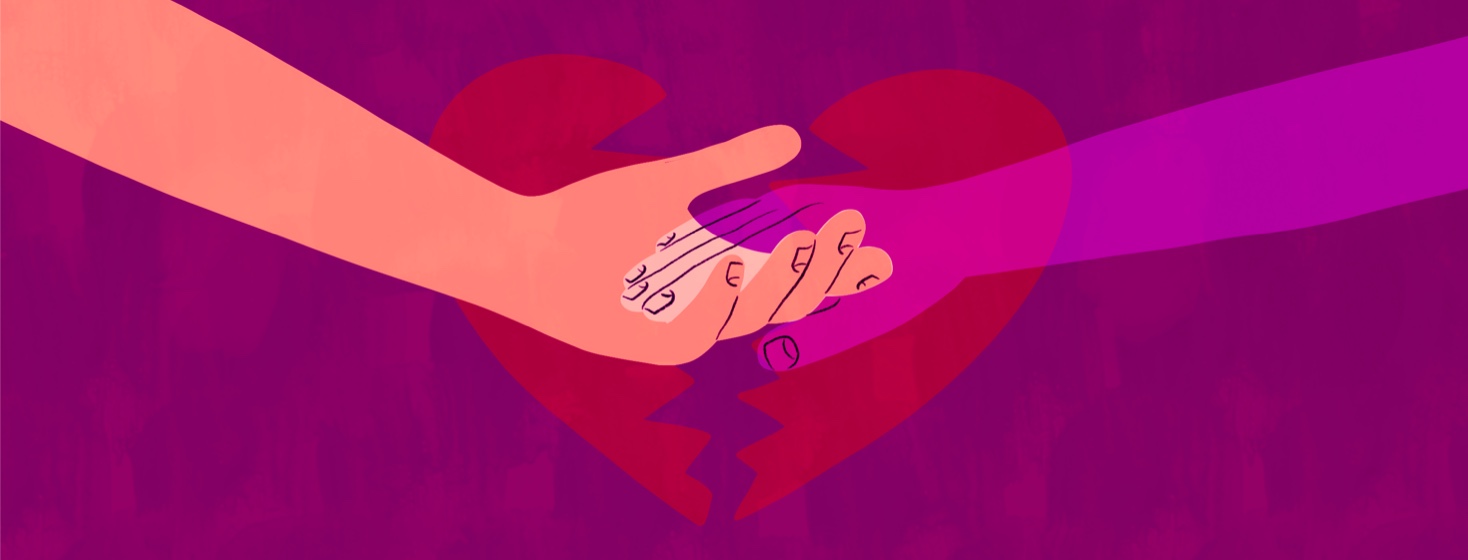Why People Disappear When You Get Cancer
Lately, I’ve been seeing a lot of talk on our site and on our Facebook page about how cancer affects the people around us. Unfortunately, many of the posts tell a similar story to mine – cancer comes not only with its myriad of physical and mental issues, but also the wonderful and amazing side-effect of pushing people away. Why?
Although there are some who really step up when someone gets a cancer diagnosis, I have to say that the majority of stories I hear are of those who sheepishly disappear into the ether. To put it nicely. Why does this happen? It’s not like cancer makes you smell bad. Well, I mean, sure, sometimes you don’t have the energy to shower for three or four days at a time but that’s what they make deodorant for. Also, if I can live with a blob monster eating part of my insides, you can deal with a little whiff of gorgonzola. So, what is the reason that cancer makes people squeamish, and so much so that they flee like you are selling loose candy bars in a parking lot? I think there are a few reasons.
Thoughts of their own mortality
First, and most cerebral of the reasons is being faced with their own mortality. If we’re being honest, cancer makes people think of death even if you aren’t given a terminal diagnosis. You could tell people you were having a benign cancerous mole removed and one or two of them would say, “oh, I’m so sorry, how long do you have?” “Ummm, for what? Until I can remove the tiny Band-aid?” It’s just an unfortunate by product of the word itself – “cancer.”
It instantly makes people think of death and that inevitably leads to thoughts about their own mortality, reminding them that they, too, could get cancer. I know, it sounds silly when written out and you read it on this page, but it’s a real phenomenon and some people simply cannot handle the association with death that cancer brings. Ergo, they’ll avoid you and then go home and turn on their Xbox to play “Kill ‘em All and Throw Them In a Woodchipper.” It’s a kid’s game.
Cancer is not accurately portrayed in media
Another reason that people seem to have an aversion to cancer is the way it’s been portrayed on shows and in the media. Most people who have never dealt with it think that every single type of cancer from leukemia to lymphoma to a benign cyst means you are going to be bedridden, probably with a scarf wrapped around your head, puke bucket next to you, splayed out right in the middle of your living room. Why? Because that’s all cancer ever is when you see it on the screen.
It’s never like, “what’s that on your leg? Oh, I have cancer, it’s nothing don’t worry about it, let’s finish this triathlon.” No, it’s always an end of the world, sadness abounding, looks-so-horrible-you-can-smell-it-through-the screen scenario, and that, understandably, makes people apprehensive of what they are going to find when they come to see you. Now, yes, there are some cancers that do result in scenes that are reminiscent of what you see in movies, but for the majority of us, it’s not that bad. Chemo has come light-years in the last decade, as well as anti-nausea meds, and some people with cancer are even able to work. Unfortunately, until a show called “Cancer, but I’m still OK.” goes viral, we’re going to have to deal with this one.
With cancer often comes uncomfortable conversations
One other reason I have divined that people like to avoid cancer is that it may mean uncomfortable conversations will happen. In fact, I’ve realized there are really only two types of conversations that happen when people talk to you about your cancer. The first is the “Oh fine, everything is good. You know, getting along. Ha, ha, how’s Jim?” kind. You know it – the surface, let’s not really talk about how serious this is, pretend like it’s just a cold sort of conversation. We’ve all had them, and you know the people who prefer it.
Then there’s the other type of conversation – the serious, things how they really are, yes, I may not make it, type of conversation. It’s just not a conversation that most people want to have when they are stopping by to drop off lemon squares. Now, the tragic part is that very, very, few friends and even family have that second type of conversation with you. Even people you thought were close can avoid it like the plague. The fear that uncomfortable subjects like death and possibly that money you owe and should really pay back especially now might come up and that risk – that chance of an awkward subject, is just a bridge too far for most. As someone who tends to avoid conflict unless it’s absolutely necessary, I get it – no one wants to get caught up and have to contemplate life-and-death in a conversation at someplace they just stopped by for a few minutes on their way home from Whole Foods. So, in order to make the risk of an uncomfortable conversation effectively zero, they avoid the whole situation entirely.
Humans do human things
As you can see, I have thought about this. Just a little bit. We just have to keep in mind that everyone is only human, and humans do human things. I know that isn’t much comfort when you are sitting alone in the middle of the day with no one talk to but Dr. Phil, but it’s the truth. Focus all your energy on getting better and you can decide who deserves to still see you once things have been settled. Talk soon.

Join the conversation